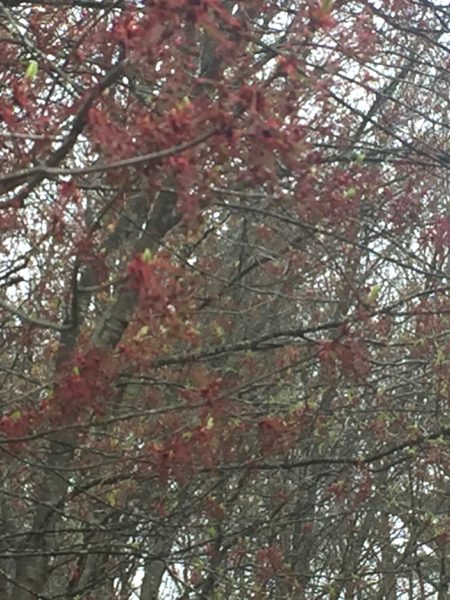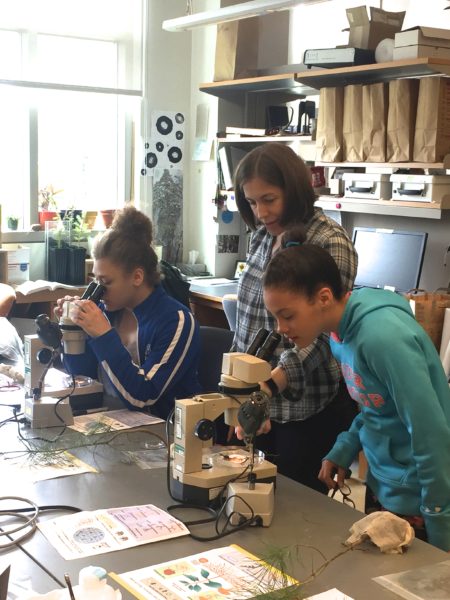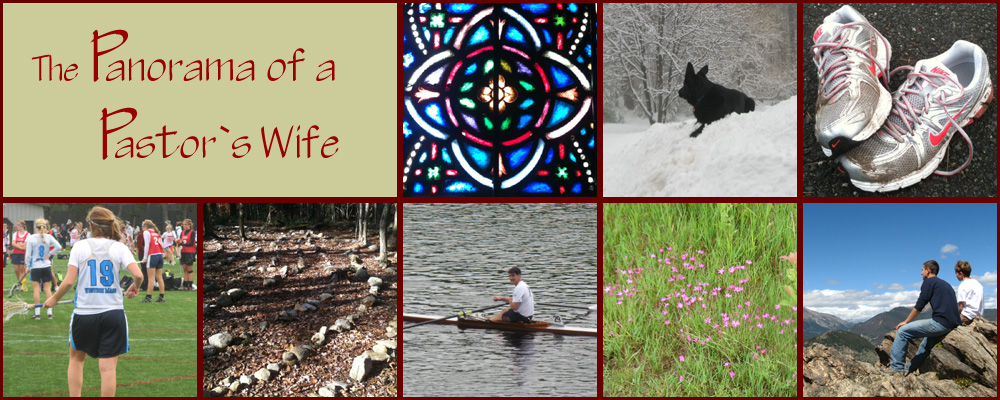Spring rites
We’re nearing graduations, a time for celebrating hard-earned completion of degrees. My mind, however, is mostly on that feeling of being immersed in ongoing work, trying in a variety of ways to get it, learning from someone else – or a bunch of people – how to do something independently. Making breakthroughs, having “Eureka!” moments, can happen at any age. Yesterday my husband spent much of the day with Episcopalians at an event called a “Revival” — a word that got alot of play in the 19th century. It seems to me that we can also experience little revivals each time we learn something new that feels valuable or make a surge forward towards a coveted goal. From a distance, we see the maple leaves beginning to come out, emerging from the red flowers that have surrounded them. Soon, the leaves will be the main thing, the flowers old news, almost like helpers who peel away when no longer needed.

Yesterday, driving up I-89 to Dartmouth College, two girls and I got to look at the panoply of colors on the trees along the highway. And when we arrived, they spent an afternoon getting exposure to a range of topics in science from graduate students who have made it far along the path of their own learning. The girls, at a distance still from finishing high school, might now imagine what it’s like to choose a subject you’re passionate about and stick with it.

And I just finished a beautiful memoir called Reading With Patrick (Random House, 2017) by a young author named Michelle Kuo. You can learn more about it here. Mostly, the book is about the power of a relationship between one teacher and one student, a young man who ends up in jail, and about the power of reading to transform someone’s life. Late in the book, Ms. Kuo presents Patrick with James Baldwin’s The Fire Next Time; they talk about it together for a while, and then she assigns him to read a particular letter for homework. When she returns the next day, this is what happens:
Patrick walked through the doorway, holding up the book in the air as if it were a medal he’d won. “It’s real,” he said. My heart surged. So finally it could be this easy. You give the person a book, he reads it, he’s moved; after a certain point you can just be a delivery woman, a conduit. (p. 244)
Being this kind of a delivery woman means attaining a certain degree of palpable success.
As for me this spring, I feel much more like this kid learning to ride a bike.

In creeping along with revising the first draft of my book, I am trying to apply the learning I did during a year-long program. The parallel with this photo would be that the father represents all the instruction, all the feedback, all the demonstrations of excellence that I have taken in. Now it’s my turn; can I do it, on my own?
I sure hope so, because nobody wants to read a lousy, or a half-baked, book.
In the meantime, I’m more attuned to other kinds of learning going on around me. The other day, for instance, when I reported to an office for an appointment, the person who did the intake had only been on the job for four days; she was being coached on every step by someone who sat right behind her. OK, I thought, this makes sense; I’m in no rush. Let her learn.
The kid in the picture will triumph once he steers his at first wobbly bike on his own. Then, each time he gets on it, he can decide what kind of journey to take. As for the father, well, he’ll have no trouble finding his own new challenges.

